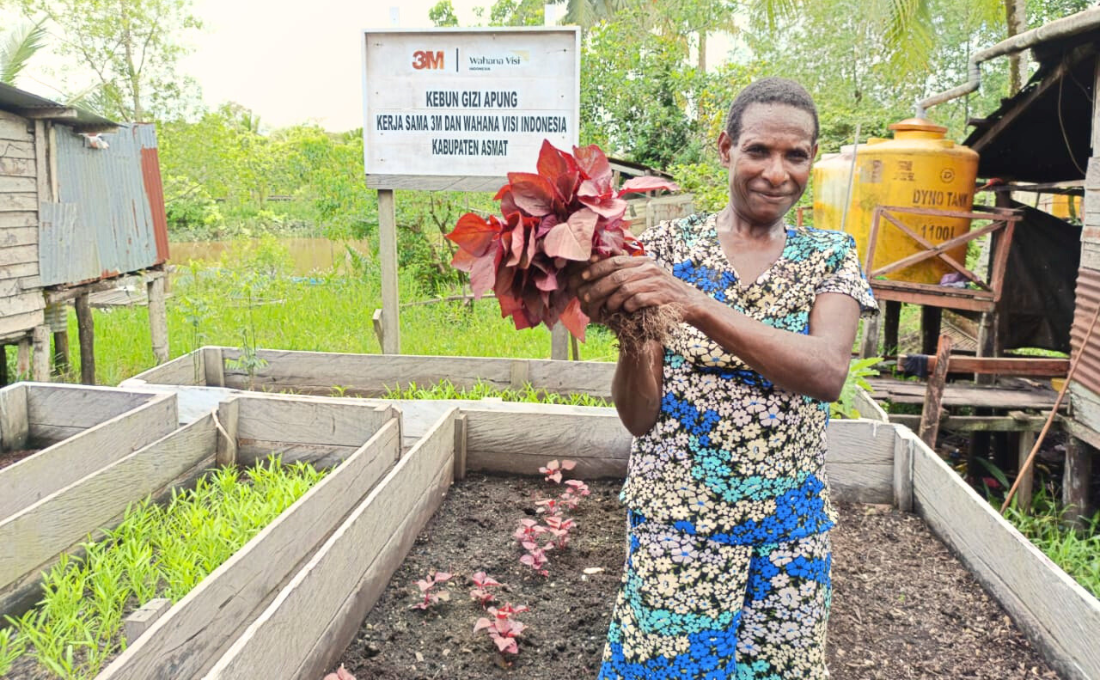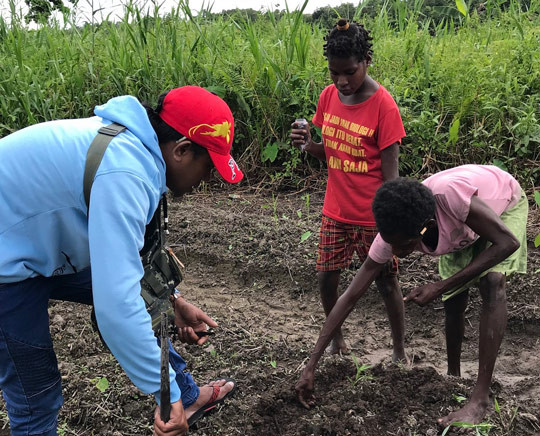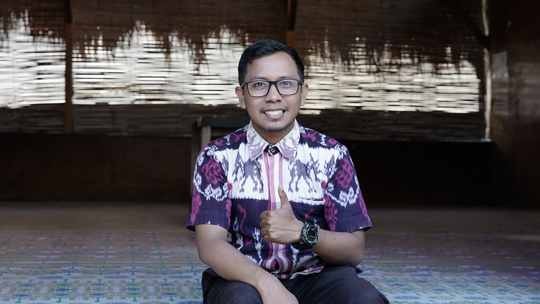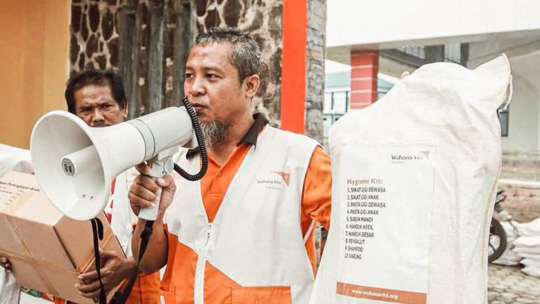Floating Farms Spark Saving Habit in Asmat, Papua

The floating nutrition gardens in Asmat, Papua, aren't just providing a variety of food for children and their families; they're also becoming a catalyst for saving money in the villages. After several years of consistent planting and good harvests for consumption, the mothers in Asmat can now sell their surplus vegetables from the floating nutrition gardens. With their household needs for vegetables already met, they sell the extra produce. The money they earn is saved because there is now a savings and loans group (S4T, Savings for Transformation) in the village.
For Mama Norberta (47), the floating nutrition garden initially met her need for vegetable variety on the dinner table. "The muddy ground and surrounded by swamp here in Asmat makes it difficult to grow vegetables. There are some that can be planted, like kasbi leaves (cassava), gedi leaves (sweet potato), and katuk leaves, but they also take a very long time to harvest. Other than those, there are no other vegetables that can be grown in the muddy soil. If we try to plant things like beans, water spinach, or mustard greens, it’s only possible when the tide is low. But then, just as they start to grow, the water level suddenly rises, and the plants die immediately. There’s nothing we can harvest," says the mother of six.
Since trying and continuing to care for the floating nutrition garden, Mama Norberta no longer has to worry about her vegetable needs. Whether the water level is low or high, her vegetables will continue to grow safely and are guaranteed to be harvested. In fact, the floating nutrition garden is now also an economic solution for her family. The garden has gained added value, not only helping to add variety to meals for her children and family but also teaching her about saving money. This has made Mama Norberta even more motivated to care for her floating garden.
"Morning and evening, Mama always waters the plants and pulls out the weeds. Yesterday, Mama and Papa also worked together to add more soil to the pots that were running low. Mama takes care of them diligently because I have gained so many benefits. Now at home, it's not difficult to find vegetables for our meals, and because Mama is also part of ASKA, I put some of the money from selling vegetables into ASKA," Mama Norberta explains. She is an active participant in various activities facilitated by Wahana Visi Indonesia (WVI). WVI supports the village where Mama Norberta lives and initiated the floating nutrition gardens as well as the savings and loans group.
Access to financial services like banks hasn't yet reached the villages in Asmat, Papua. The people of Asmat also haven't made saving a priority. Family finances are managed on the principle of spending as much money as they have on a given day. As a result, when there are mandatory expenses to pay for things like school or a child’s health, most parents in Asmat don't have any savings to use.
When the floating nutrition gardens began to become a source of income for the community, WVI, in collaboration with village stakeholders, tried to initiate a savings and loans group known as S4T. Its main goal is to introduce the concept of saving and loan, built on agreements among all the members, so that everyone can benefit. The condition is that all savings and loans in S4T must be for the benefit of children, families, and the community. This is why, for mothers like Mama Norberta, S4T is very beneficial because it can help meet the needs of her six children whenever necessary.
Author: Maksimus Asrul (Field facilitator for Asmat Area Programme)
Editor: Mariana Kurniawati (Communication Executive)



